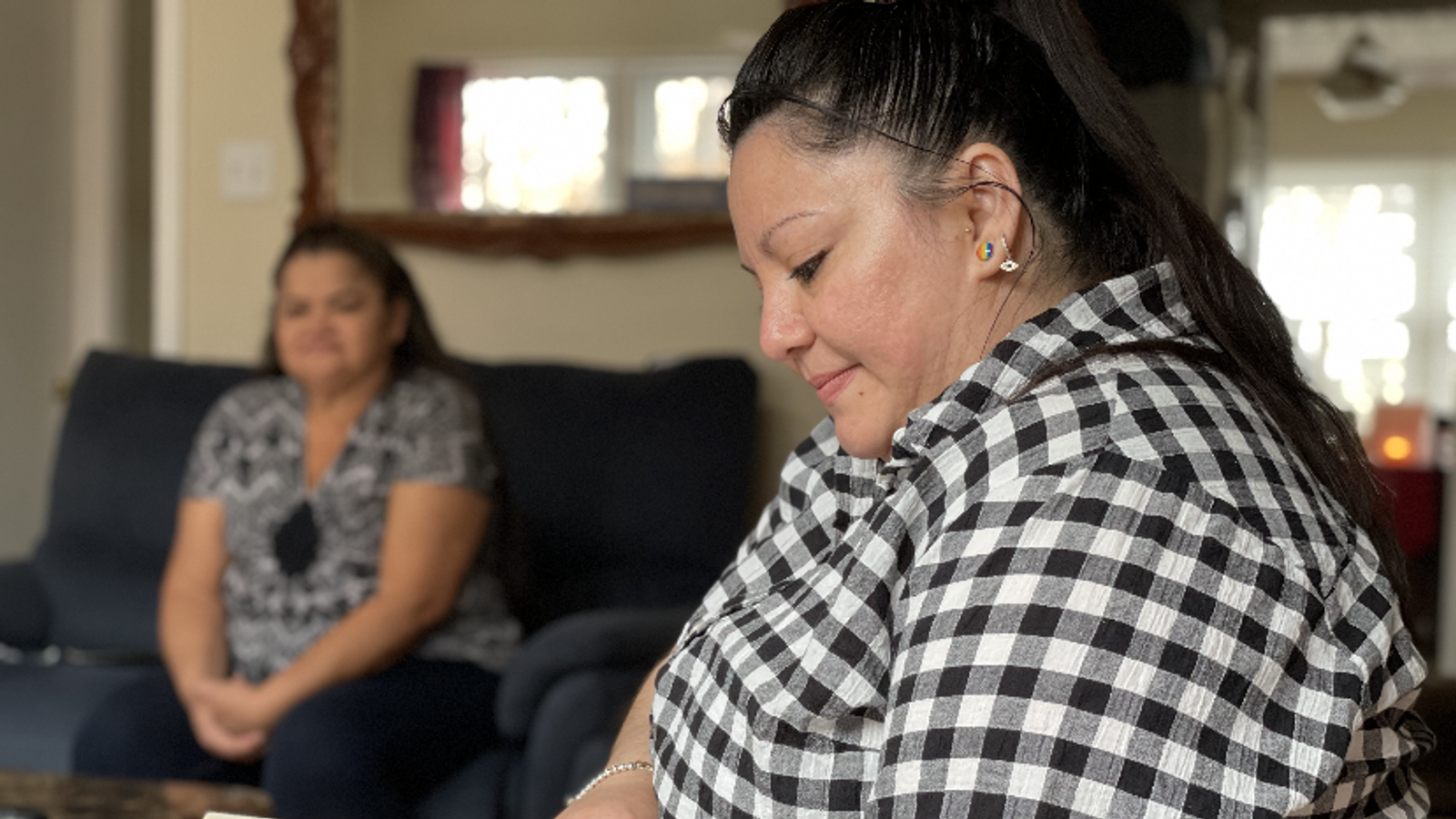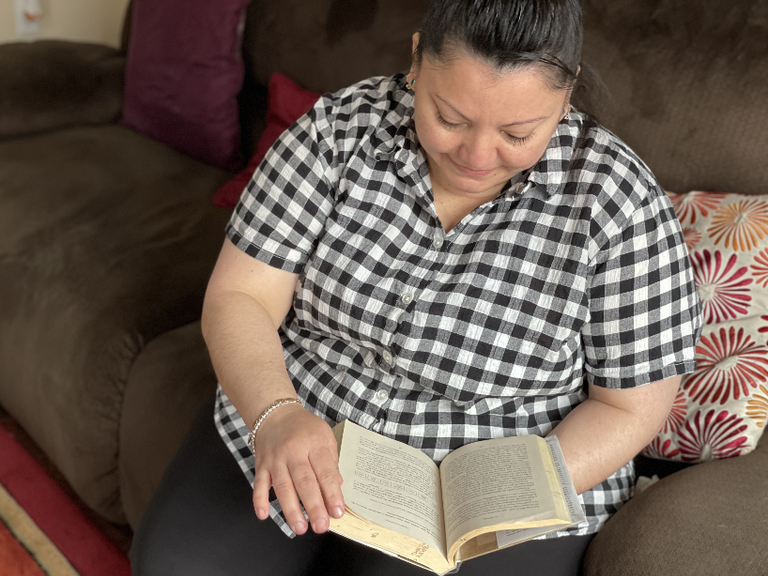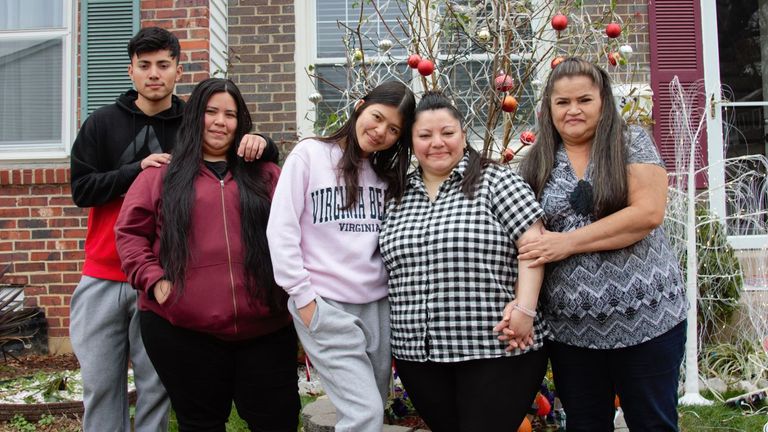A woman spent six years languishing in US immigration detention due to a “bogus” Interpol red notice stemming from a harassment campaign by a police officer in El Salvador.
Jessica Barahona Martinez, who is originally from the Central American country, told Sky News and its US partner NBC News about her ordeal in her first sit-down interview since her release.
During her time in detention, her sister died of cancer and she rarely saw her children after being moved to a facility more than 1,000 miles away from her family.
Ms Barahona Martinez’s lawyer Sandra Grossman describes it as one of the worst cases she had come across.
“We have been fighting bogus red notices for over 15 years,” she said.
“And I can tell you that this is one of the most egregious examples of Interpol abuse that we’ve ever seen.”
The US is considered a leader in tackling Interpol abuse – in which authoritarian states use the notice system to target dissidents abroad, or when individuals use it in the service of private disputes.
While the US has specific legislation to prevent Interpol from being used for transnational repression, immigration authorities are ignoring guidance not to arrest people solely based on a red notice.
Ms Barahona Martinez said her ordeal began when a local police officer in her hometown in El Salvador began a campaign of harassment, targeting her due to her sexuality.
She said he initially accused her of being interested in his girlfriend, and went on to sexually harass and assault her in the town’s market.
“He talked to me like I was nothing, like I was trash,” she said. “He called me a waste of a woman.”
Dangerous allegation
Eventually, the police officer accused Ms Barahona Martinez of extortion, for the amount of roughly $30, and said she was part of a gang – which is considered an extremely serious allegation in El Salvador.
The country has a long history of gang violence, and at one point had the highest murder rate in the world.
The subsequent crackdown has been effective but brutal; human rights groups say it has included torture and arbitrary detention, while police have bragged about being able to “arrest anyone we want”.
Ms Barahona Martinez spent nine months detained in El Salvador waiting for a court date, until her case was dismissed for lack of evidence in March 2015.
Upon her release, the harassment resumed. She said the same car would drive by her house each night.
Ms Barahona Martinez has three children from a previous relationship, and says she started receiving threatening phone calls from a person who listed her children’s names and where they went to school.
In May 2016, a year after her case was dismissed in El Salvador, Ms Barahona Martinez fled to the US. She submitted an official asylum application in April 2017.
However, she was unaware that police in El Salvador had attempted to re-open her case in the meantime.
She did not show up for a subsequent court appearance, and so local police circulated a red notice via Interpol.
Immigration officers in the US are not supposed to detain somebody purely on the basis of a red notice.
But when Ms Barahona Martinez attended her monthly check-in with immigration authorities on a Friday in June, she was told to head home and pack her bags, say goodbye to her children and report to a detention centre the following Monday morning.
Two asylum bids
Ms Barahona Martinez first learned she had been detained due to a red notice when she was denied bail a month later.
She would spend six years in detention.
Twice she was granted asylum. Two separate immigration judges found her claims of persecution in El Salvador credible – in 2018 and again in 2019.
However, both times an immigration board overturned the asylum decision, citing the existence of the red notice.
Authorities claimed the red notice meant that Ms Barahona Martinez was banned from refugee status under a rule called the mandatory non-political crime bar, which is designed to prevent people who have committed crimes abroad from seeking asylum after they have gone on the run.
But for Ms Barahona Martinez, the red notice resulted from – and was evidence of – the very persecution she was escaping.
Nevertheless, she was detained for the entirety of her asylum proceedings.
Ms Grossman said this was because of a disconnect between US policy and practice when it comes to Interpol notices.
‘Fundamental misunderstanding’
Although the US government guidelines state that a red notice should not automatically lead to detention, in practice that is what happens in the immigration system.
“I think this might hopefully be changing in the United States, but it appears in most of these cases that the red notice is sort of looked at as evidence of criminality and often as conclusive evidence of criminality,” Ms Grossman said.
“There seems to be a fundamental misunderstanding in the United States about what a red notice is and is not.”
Ms Grossman believes that if Interpol was more transparent about the ways in which red notices can go wrong, both officials and victims of Interpol abuse would be better equipped to respond.
“It would be really helpful for cases where there’s bogus red notices involved for Interpol to be much more open about the fact that this happens,” she said.
Ms Barahona Martinez’s case came to light after the American Civil Liberties Union (ACLU) met with her on one of their regular tours of detention centres in early 2023.
They then turned to Ms Grossman for specialist help.
When she petitioned Interpol’s review body she received an unusually swift reply telling her the red notice had been deleted.
From shock to panic
Still, Ms Barahona Martinez remained in detention until September last year, when she was released without warning after several interview requests by Sky News and the filing of a habeas petition by the ACLU, which would have seen her case brought before a higher judge.
Read more:
El Salvador opens 40,000-inmate prison in ‘war against gangs’
10,000 police and soldiers to seal off entire El Salvador town
On 28 September, as Ms Barahona Martinez was working in the kitchen at a Louisiana detention centre, an immigration official sought her out to inform her she was being released the following day.
She told Sky News she was so shocked that she told the officer there must have been a mistake.
However, her shock soon turned to panic. After six years inside, she was not sure how she would cope with the outside world or even how to get back to her family.
“What was I going to find outside? I spoke to my mother, I said to her ‘Mum, what if I get lost?’ It was something that I honestly wasn’t prepared for at the time. And she told me, ‘You’re not going to get lost. We will find you’.”
The day after Ms Barahona was released, US authorities published updated guidance, reiterating that immigration officers shouldn’t detain people solely on the basis of a red notice.
‘Very robust system’
In an earlier episode of Sky News’ Dirty Work podcast, Interpol Secretary General Jurgen Stock defended the red notice system.
He said: “I think it is a very robust system, and it is a very successful system first and foremost because it helps almost every day around the world to catch dangerous fugitives, murderers, rapists, those who are exploiting children, drug traffickers.”
When asked about people ending up with a notice that should not have been issued, he said: “[It is] a small number of cases, but of course, very often significant cases that end up in the media and where we say, yes, this notice should not have been published.
“Every one of those cases is a case too many because we know the consequences this might have,” he said.
A spokesperson for the US Immigrations and Customs Enforcement Agency (ICE) said: “Regardless of nationality, ICE makes custody determinations on a case-by-case basis, in accordance with US law and US department of homeland security policy, considering the circumstances of each case.”



